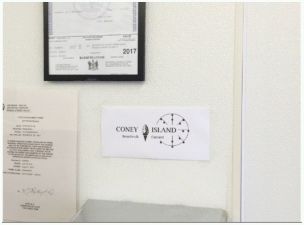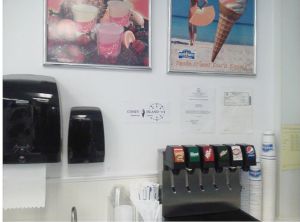The United States Patent and Trademark Office (the "PTO") has launched a new pilot program designed to ensure that specimens of use submitted to the PTO reflect actual use of the mark in commerce.
A mark is "used in commerce" within the meaning of the federal trademark statute (the Lanham Act) when the mark is affixed to goods (or containers or displays) and the goods are sold or transported in commerce and/or the mark is used in advertising or promotional materials that describe the services and the services are rendered in commerce. In both cases, the use must occur in the ordinary course of trade. A U.S. applicant must prove use of the mark in commerce before the application may proceed to registration. All registrants must prove use of the mark (or excusable non-use) in order to maintain the registration. Thus, specimens may be submitted as part of initial applications and/or allegations, statements, and declarations of use.
Under the PTO's pilot program, third parties are invited to notify the PTO through a designated email address of any improper specimens submitted by an applicant. An improper specimen is one that is not actually in use, but may have been created specifically for the purpose of appearing to satisfy the PTO's filing requirements.
To notify the PTO of an improper specimen, one must send it objective evidence showing third party use of the same image without the mark or cite to the prior application or registration numbers in which the same images (bearing different marks) have been submitted to the PTO. The PTO must receive the correspondence no later than the deadline for opposing registration of the pertinent application, but the PTO expresses a desire to receive such correspondence prior to publication whenever possible.
If someone is interested in knowing the outcome of the PTO's investigation into an allegedly improper specimen, they must monitor the TSDR status page of the reported application. The PTO will not respond to the person who notified it of the improper specimen other than by automated reply acknowledging receipt of the report. This PTO program is subject to change and may terminate at any time.
Like letters of protest, this program offers people a low-cost opportunity to identify problems with pending applications and ask the PTO to address them, thereby potentially avoiding the expense and burden associated with addressing them directly through a notice of opposition. Unlike notices of opposition, the person notifying the PTO of an improper specimen does not need to be someone who believes they would be damaged by registration of the mark that is the subject of the pending application. Because the PTO accepts notices of improper specimens only prior to the deadline for opposition, this pilot program will not address improper specimens submitted after the publication period expires.
Although not stated expressly in the PTO's materials, this pilot program seems to have a purpose similar to some of the PTO's other programs, like the proposed streamlined cancellation process described here and the audit program originally described here (and which went into effect in November, 2017). All seem generally designed to promote the accuracy and integrity of the federal trademark register.
This PTO program seems to be seeking assistance in identifying a particular type of improper specimen, namely, mock ups or fabricated specimens. Current technology makes it all too easy to create an image that could appear to be a genuine specimen even though the applicant has not made use of the mark in commerce. On the flip side, there are some specimens that are accepted as genuine even if it doesn't look like much effort went into creating them.
In In re Kohr Brothers, Inc., 121 U.S.P.Q.2d 1793 (TTAB 2017), a precedential TTAB decision, the TTAB affirmed a refusal to register the mark CONEY ISLAND BOARDWALK CUSTARD for use with frozen desserts when the specimen consisted of the following:

The examining attorney had refused registration of the mark, observing in part "The specimen is a piece of paper taped to a wall with the mark and a stylized image of a cone dessert printed on it. The location on the wall appears to be above the top of a garbage can."
On appeal in Kohr, the issue was whether the specimen satisfied the requirements for a point-of-purchase display for goods. The TTAB decided that it did not, but refrained from judging the nature of the specimen itself. When the applicant filed a new application seeking registration of the mark in connection with retail services featuring frozen desserts, the PTO accepted the same specimen displayed in a slightly different location:

The PTO's mission to preserve the integrity of the federal trademark database is laudable. This program is one tool designed to help achieve that goal, but will necessarily be underinclusive. If you spot an improper specimen, consider taking the time to notify the PTO. If you are an applicant seeking to register a mark, be extra conscientious about working with your attorney to confirm that the mark is being used in commerce and that the specimen accurately reflects this.
The lawyers at Trademarkology provide trademark registration services backed by the experience and service of one of the nation's oldest law firms. Click here to begin the process of protecting your brand name with a federally registered trademark.
The content of this article is intended to provide a general guide to the subject matter. Specialist advice should be sought about your specific circumstances.
